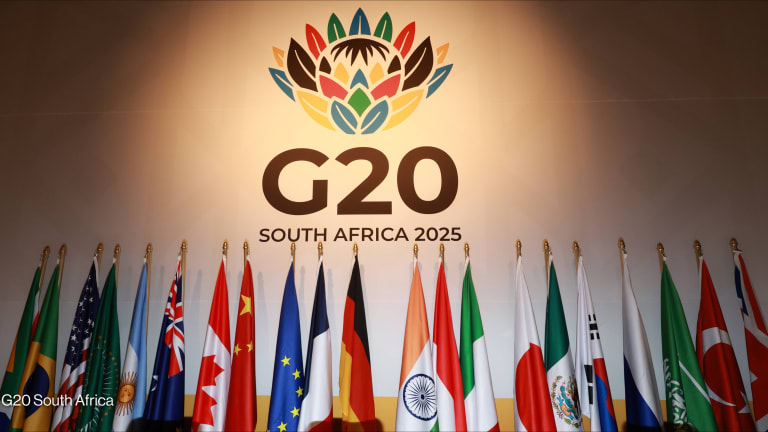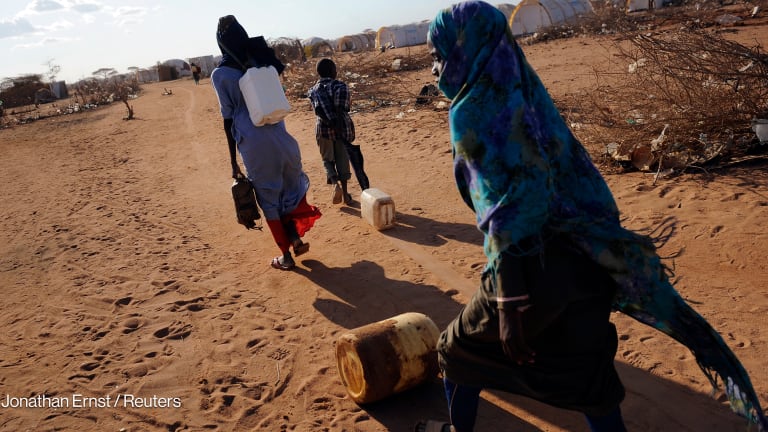
U.S. President-elect Joe Biden moves into the Oval Office with a lengthy international economic policy agenda. Exacerbated by the COVID-19 pandemic, the specter of an international debt crisis looms in the coming months, as about half of low-income countries are already in debt distress or at high risk of it. The administration of President Donald Trump has avoided long-term discussion of this matter, preferring to rely on half measures.
In order for the president-elect to firmly address this challenge, there is a need for bolder thinking.
The debt crisis is emerging because the pandemic has made finances unsustainable. As growth has slowed, export markets and tourism have dried up, and tax revenues are down. As a result, countries that were able to previously cover their debts now find themselves in trouble.
The problem is that the International Monetary Fund is playing blame games; referring to the crisis as a “pre-existing condition” overlooks the fund’s responsibility both to send appropriate warnings and to provide the needed resources to help these countries combat the pandemic. The new common framework from the G-20 group of leading economies proposes restructuring debts on a case-by-case basis rather than a broader across-the-board solution. These incremental solutions merely postpone a larger reckoning.
Our responsibility is to ensure that low- and middle-income countries, or LMICs, have the same tools that high-income countries have, allowing them to fight the pandemic with greater liquidity. LMICs should be no different.
Despite calls for reform, I have found little evidence that the fund’s fiscal conditionality is adapting to the current challenge. Governments that cut budgets during a pandemic both harm future growth and make it more difficult to combat the pandemic. Because IMF has received requests for assistance from over 100 countries, the content of the conditions that need to be met to receive assistance from IMF matters a great deal.
Where the US stands on G-20 debt deals, SDRs, and global COVID-19 response
Brent McIntosh, under secretary for international affairs at the U.S. Treasury Department, laid out the U.S. position on G-20 debt discussions and global COVID-19 funding through IMF.
IMF needs to publicly forswear conditionality that targets health, education, and public goods spending for the duration of the pandemic. This will give countries added confidence that borrowing from IMF, when it happens, will not cause undue harm. The fund needs to change its approach from “do what it takes, but save the receipts” to “do what it takes, and we won’t punish you for it.”
For its part, the G-20 needs to expand the fund’s resources to fight this crisis. LMICs need more concessional aid, not more conditionality. Calls for an expansion of IMF’s Special Drawing Rights are fully appropriate and should be supported by the White House under Biden, just as they were for the global economic crisis in 2009. By contrast, the Trump administration has resisted calls to give IMF more resources. If not now, when?
The time is right for debt solutions that advance other pieces of the Biden agenda. “Debt for nature” swaps are an innovation that has been around since the 1980s, and this model can both reduce privately held debt and mobilize borrower resources to improve the environment.
There is no reason why these cannot be scaled up to “debt for climate” swaps. While not appropriate in all circumstances, encouraging their use will not only build on U.S. reentry into the Paris climate accord and catalyze further environmental actions, but they will also go a long way to reengaging many LMICs that the Trump administration neglected.
The nonresponse to the debt crisis from the G-20 and the Trump White House will make ending the pandemic more difficult. Countries will be needing additional access to capital for vaccines and for the infrastructure to deliver them. The World Bank’s new vehicle is a good start, but it is well worth thinking whether loans — and not grants — are the ideal route forward. While we are months away from this, the time to consider solutions is now, and the need for future money in subsequent months makes the case for debt relief now much more compelling.
G20, IMF deliver on debt relief, but more is needed, experts say
The G-20 and IMF both announced debt relief plans this week to free up over $20 billion for the world's lowest-income countries this year. But some experts say this merely kicks the can down the road.
Finally, Biden can renew U.S. leadership at IMF not only by supporting a new issuing of Special Drawing Rights, but also by jump-starting progress on IMF quota reform. Quotas, which represent borrowing rights within IMF, are a signifier of influence within the global economy. We cannot have greater collaboration on jump-starting that economy without appropriate recognition that LMICs are increasingly important partners. Quota reform ensures that the future financing of IMF is more stable.
The need for bold action is urgent. More than 60 countries already are paying more for debt service than for health spending. This is no way to keep a population safe. Barring a resolution, governments will choose between foreign creditors and combating the pandemic. As Zambia shows us in its recent default, governments will always choose the welfare of their own citizens first. It will be up to the president-elect to create the proper conditions internationally for all governments to combat the pandemic at home.








